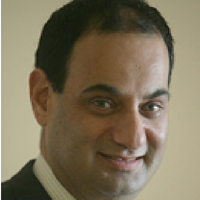

It seems to me that we are getting so caught up in using super monies to find immediate solutions to often complex problems that we are losing sight of long-term goals.
Let's call her Sarah. For the past six months, this 23-year-old has been working as a trainee in the marketing department of one of the largest cosmetic companies in Australia. At the same time, she is finishing the last subjects for her commerce and arts degrees at Monash University.
She's no different to thousands of other young Australians. It's her first full-time job, and getting that weekly pay packet is a pretty good feeling. But she's quickly discovered the money doesn't go as far as she like. Rent, running a car, food and entertainment – it quickly burns a hole in the purse.
Sarah is also like most of her peers is another respect: superannuation isn't part of her lexicon. She has a vague idea her employer is paying money into a super fund on her behalf, but how much, or even which fund, that's certainly not top of mind. Super is for when you retire and that's more than four decades away – an eternity.
But if Sarah has no interest in super, the reality is her fund is accumulating at 9.5 per cent of her weekly wage, and after six months (and ignoring the payments for the part-time jobs she has held), she has received about $2,000. Over more than 40 years, compound interest is going to turn that into a tidy sum. As Albert Einstein is reported to have famously said, "Compound interest is the eighth wonder of the world. He who understands it, earns it ... he who doesn't ... pays it."
One other thing can be said for certain about Sarah. If, as the Deputy Prime Minister Barnaby Joyce mused recently, she could get her super money in her weekly pay packet it would go on ... rent, running a car, food and entertainment. Saving for a house is simply not on her radar at 23. Starting a career, shopping, partying and travel are what's on this young woman's bucket list.
Which is why the repeated ideas that float out of the national capital about potential uses for superannuation just seem to get sillier and sillier.
Let's get one thing straight. Superannuation was established with one specific goal in mind – to give people the opportunity to retire with security and dignity.
That was universally accepted when we introduced compulsory superannuation in 1992, but now it seems we are not so sure. Or, rather, the politicians are not so sure.
In its infancy, the funds under management were negligible; the Wallis Inquiry, which handed down its report in 1997, hardly mentioned superannuation. No one was all that interested. But now there is a $2 trillion honey pot, everyone wants to get their hands in the jar to either change the way the honey is collected or spent. It seems no idea is too fanciful.
This is why it's imperative we establish a legislative framework around superannuation, setting out the long-term goals that enshrine the principles of universality, equity, and sustainability.
It seems to me that we are getting so caught up in using super monies to find immediate solutions to often complex problems that we are losing sight of long-term goals such as superannuation that were deliberately structured with people's entire working lives as their timeframe. Just as we are starting to reap the benefits of the decision to introduce compulsory superannuation, it seems we want to change it.
As a consequence, people are losing faith in the system; every change that happens, typically accompanied by political acrimony, just chips away at public confidence in the system. The politicians have recognised this; both the opposition and government in recent days have mouthed platitudes about giving superannuation long-term policy goals.
But at the same time it is becoming increasingly clear that superannuation is going to be a key battleground in the next election – hardly conducive to finding a bipartisan approach to this critical policy area.
For the past seven years, the Mercer report on superannuation systems around the globe has marked Australia in the top three; other countries envy us for the strides we have made in coming to terms with the twin issues of growing government deficits via the aged pension and longevity. We have got something right; let's keep it that way.
 George Lucas is managing director of Instreet Investment Limited. He has more than 24 years' experience in the investment banking and funds management industries specialising in developing, managing and structuring financial products. He was previously a director of two listed investment trusts, chief investment officer at Mariner Financial, and a senior equities derivatives trader with Citibank and First Chicago in London.
George Lucas is managing director of Instreet Investment Limited. He has more than 24 years' experience in the investment banking and funds management industries specialising in developing, managing and structuring financial products. He was previously a director of two listed investment trusts, chief investment officer at Mariner Financial, and a senior equities derivatives trader with Citibank and First Chicago in London.
Never miss the stories that impact the industry.